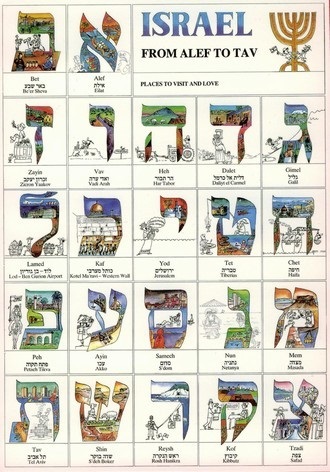Learning Hebrew can present new learners with several challenges. These include mastering the alphabet, reading Hebrew from left to right, and comprehending syntactical complexities.
However, these difficulties should not prevent you from progressing with learning the language if you're serious about doing so. On the contrary, they should actually accelerate your progress!
is it worth learning Hebrew?
Learning Hebrew may seem like a daunting task, but it can be both enjoyable and rewarding. Additionally, it helps develop cognitive reserve and stimulates your brain – both of which have positive effects on health and longevity.
Beyond practical reasons, learning Hebrew might be beneficial: It's the official language of Israel and many Israelis live abroad, so having knowledge of this language will enhance your travel experience when visiting Israel.
Another advantage is it provides a deeper comprehension of Scripture. You might be amazed at how much more meaningful and insightful Scripture looks when read in its original language, leading to increased spiritual growth and closer connections with God.
Additionally, studying Hebrew can give you a deeper appreciation for the culture and customs of Israelis, making your travel experience more authentic and meaningful.
Finally, having knowledge of Hebrew can be invaluable if you ever decide to launch your own business or pursue a career in an associated field. The Israeli economy is one of the world's most dynamic, providing many chances to utilize your abilities on the market.
The question then becomes whether learning Hebrew is worth the effort. It can be a difficult endeavor and may take some effort, but it can also be enjoyable and beneficial to your health.
Can you learn Hebrew by reading a book?
If you're interested in learning Hebrew, there are a few things to consider. First and foremost, setting goals is key; goals help keep you motivated and on track.
Second, you need to use appropriate Hebrew learning material. This could include a Hebrew textbook, an online class or self-paced courses.
Finally, you must practice Hebrew language skills by writing out phrases and sentences, reading Hebrew literature or listening to traditional songs in the language. This could involve anything from memorizing phrases and sentences from memory, to reading books written in Hebrew by experts and singing along with them.
Additionally, try to incorporate the new words into your everyday activities. Doing this will help you retain what you've learned and can be an effective way to master Hebrew quickly.
Another useful tip to remember is that Hebrew reads from right to left. This may be something new for many beginners, so it may take some effort to become comfortable with.
The good news is that there are plenty of Hebrew learning resources available – some even free! For instance, Hebrew for Kids! is a 32 page book designed to introduce basic Hebrew concepts to children through pictures of common words and vocabulary both in Hebrew and English. It makes an ideal starter guide.
Is learning Hebrew easy?
Hebrew can seem intimidatingly complex to learn, but it doesn't have to be. With the right approach, learning Hebrew won't be that hard at all!
One of the primary challenges in Hebrew is that its writing system differs significantly from most languages. Letters are written from right to left instead of left to right, and each letter has a final form determined by which word it's attached to.
Learning the writing system can be a fun challenge as you begin to make connections between Hebrew and other language alphabets. Visual aids such as pictures can also be helpful in memorizing letters.
Grammar can be a big hurdle in Hebrew. This language uses binyanim (which translates to "sets") to express its logical relationships between words, making it seem tedious at first glance; however, mastering this part of learning Hebrew will transform how you communicate with others.
Once you've mastered this, you can begin building your Hebrew vocabulary which will make the learning process much smoother. Be familiar with common verb forms (singular and plural) as well as noun genders.
for more info : moderntalkbooks.com

